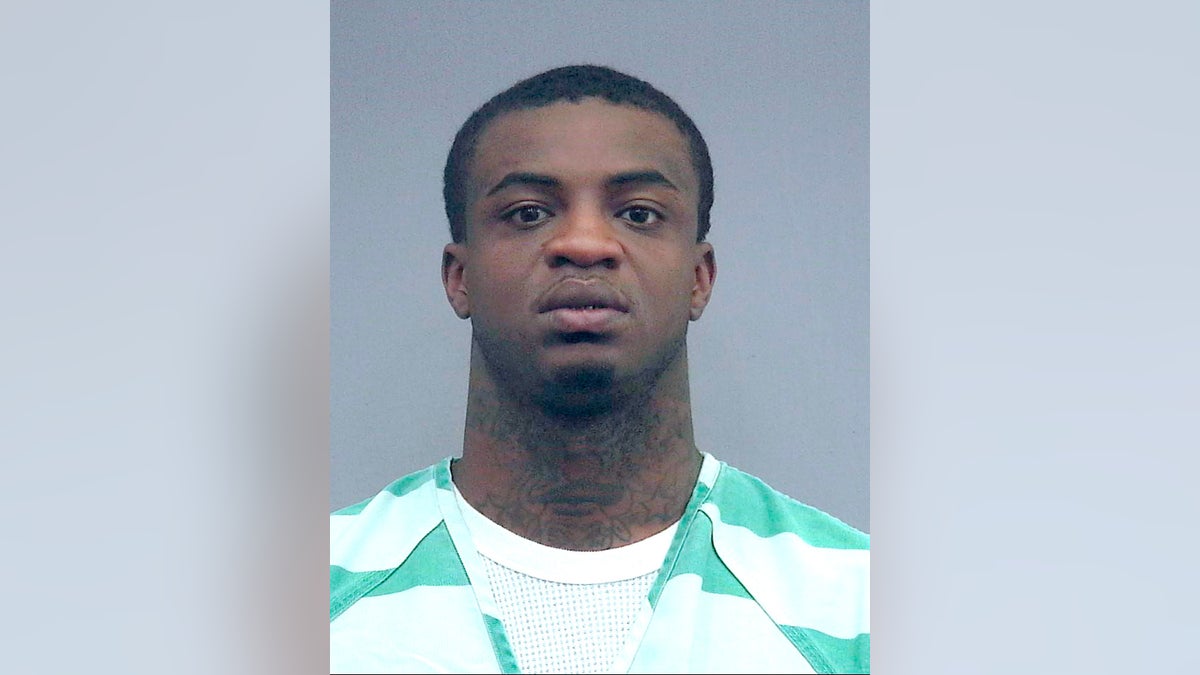
In this April 10, 2019 photo made available by the Alachua County Sheriff's Office shows Christopher McCallum under arrest. McCallum, a Florida rapper, was arrested after threatening a mass shooting after song lyrics posted on Facebook say he will "catch you at a Gator game and shoot the whole campus up." (Alachua County Sherriff's Office via AP)
GAINESVILLE, Fla. – A Florida rapper has been arrested on a charge of threatening a mass shooting after allegedly posting song lyrics on Facebook that vowed to "catch you at a Gator game and shoot the whole campus up."
Alachua County Sheriff's deputies arrested Christopher Maurice McCallum, 26, on Tuesday. His case mirrors the U.S. Supreme Court free speech appeal of Pennsylvania rapper Jamal Knox, aka Mayhem Mal, who's accused of making terrorist threats against two police officers.
The lyrics stem from a feud between McCallum and another rapper. The rap McCallum allegedly posted on March 22 also appeared to threaten violence during a concert the next night at a Gainesville nightclub.
"Rap is a heavily stigmatized genre of music," Clay Calvert, a First Amendment expert on the faculty of the University of Florida's College of Journalism and Communications told the Gainesville Sun . "It's not unusual for rap to find itself in the crosshairs of prosecution."
Calvert said the Supreme Court has ruled "true threats" are not protected speech, but hasn't made clear whether the threat must be a real intention of the person who speaks it, whether it's enough that a reasonable person believes it, or whether it's both.
Under Florida statutes, it is a felony to threaten to kill or injure someone, as is writing or composing something that indicates the person will conduct a mass shooting or act of terrorism. Florida law changed after a mass shooting that killed 17 people at Marjory Stoneman Douglas High School in Parkland, Florida, on Feb. 14, 2018.
"I haven't listened to the entire song. My understanding is it was very specific as to locations — and concurrent with an upcoming concert," said Sheriff's Lt. Brett Rhodenizer. "When the court process continues ... and if ultimately this is not a level of proof where he is proven guilty beyond a reasonable doubt, that's the way the system is supposed to work. But is it probable cause to make an arrest in the interest of public safety? I think so."
The Supreme Court is scheduled to take up the Pennsylvania case later this month. Knox was found guilty in a nonjury trial and a state appeals court upheld the conviction, ruling the song crossed a line called the "true threat doctrine," which is not protected by the First Amendment.
Jail records don't list a lawyer for McCallum.









































